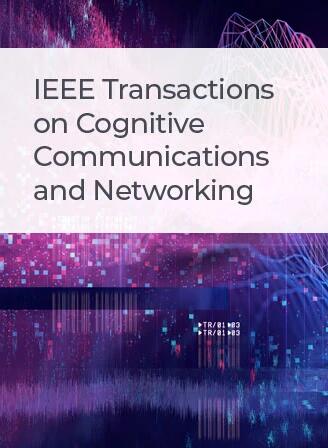Traffic Priority-Aware Multi-User Distributed Dynamic Spectrum Access: A Multi-Agent Deep RL Approach
IF 7.4
1区 计算机科学
Q1 TELECOMMUNICATIONS
IEEE Transactions on Cognitive Communications and Networking
Pub Date : 2023-08-23
DOI:10.1109/TCCN.2023.3307944
引用次数: 0
Abstract
Real-time information exchange on traffic and channel selection results among users in dynamic spectrum access (DSA) system consumes scarce spectrum resources. However, it is difficult to avoid collision and improve system-wide global utility simultaneously without assistance of these information in a distributed way. To solve this problem, we propose a multi-agent deep reinforcement learning (RL) based traffic priority-aware multi-user distributed DSA scheme for a multiple orthogonal channels scenario. Different from the conventional approaches for throughput sum maximization, we maximize a total network utility parameterized by the situation of each user’s traffic buffer queue. This scheme includes off-line centralized training and distributed execution. The deep Q-learning neural network (DQN) of each user is trained by an offline simulator with global information to learn near-optimal channel selection policies from the transition history. The input of DQN requires only user’s local observation to ensure that the scheme based on the trained DQNs can be executed in a distributed way. Simulation results show that the proposed scheme compared with benchmark algorithms can achieve about 90% or more of performance of Genie-aided algorithm based on global information, and is much better than random-type algorithms.流量优先感知的多用户分布式动态频谱接入:多代理深度 RL 方法
在动态频谱接入(DSA)系统中,用户之间关于流量和信道选择结果的实时信息交换会消耗稀缺的频谱资源。然而,如果没有这些分布式信息的帮助,就很难同时避免碰撞和提高整个系统的全局效用。为了解决这个问题,我们针对多正交信道场景,提出了一种基于多代理深度强化学习(RL)的流量优先级感知多用户分布式 DSA 方案。与传统的吞吐量总和最大化方法不同,我们最大化的是以每个用户流量缓冲队列情况为参数的总网络效用。该方案包括离线集中训练和分布式执行。每个用户的深度 Q-learning 神经网络(DQN)由离线模拟器利用全局信息进行训练,从过渡历史中学习近乎最优的信道选择策略。DQN 的输入只需要用户的本地观测,以确保基于训练好的 DQN 的方案能以分布式方式执行。仿真结果表明,与基准算法相比,所提出的方案能达到基于全局信息的 Genie 辅助算法性能的 90% 或更高,远远优于随机型算法。
本文章由计算机程序翻译,如有差异,请以英文原文为准。
求助全文
约1分钟内获得全文
求助全文
来源期刊

IEEE Transactions on Cognitive Communications and Networking
Computer Science-Artificial Intelligence
CiteScore
15.50
自引率
7.00%
发文量
108
期刊介绍:
The IEEE Transactions on Cognitive Communications and Networking (TCCN) aims to publish high-quality manuscripts that push the boundaries of cognitive communications and networking research. Cognitive, in this context, refers to the application of perception, learning, reasoning, memory, and adaptive approaches in communication system design. The transactions welcome submissions that explore various aspects of cognitive communications and networks, focusing on innovative and holistic approaches to complex system design. Key topics covered include architecture, protocols, cross-layer design, and cognition cycle design for cognitive networks. Additionally, research on machine learning, artificial intelligence, end-to-end and distributed intelligence, software-defined networking, cognitive radios, spectrum sharing, and security and privacy issues in cognitive networks are of interest. The publication also encourages papers addressing novel services and applications enabled by these cognitive concepts.
 求助内容:
求助内容: 应助结果提醒方式:
应助结果提醒方式:


